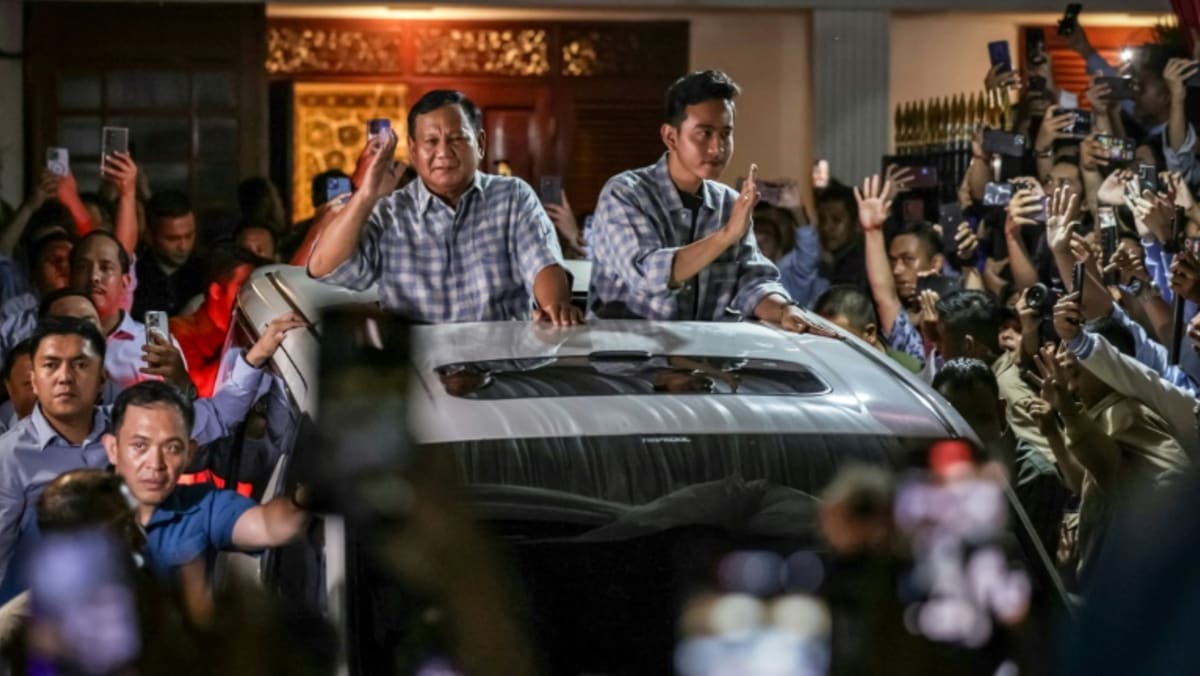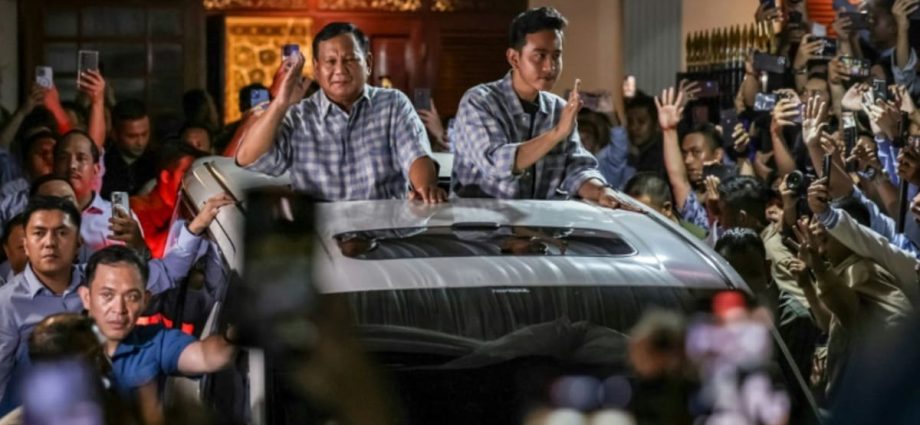
BANDUNG, Indonesia: Voters in the world’s third-largest democracy, Indonesia, have elected former army general Prabowo Subianto as its eighth president, despite his campaign being dogged by accusations of human rights violations and electoral fraud.
According to the latest reliable polling, Prabowo – Indonesia’s defence minister – secured almost 60 per cent of the votes in what is considered as the largest and most complex single-day election in the world. This will likely mean that there will be no second round.
More than 200 million eligible voters in more than 17,000 islands cast their votes at more than 820,000 polling stations. The one-day voting process involved 5.7 million election workers, almost the size of Singapore’s population.
Given the complexity of the election, General Elections Commission will announce the official result on Mar 20. But since its first direct presidential election in 2004, Indonesia has relied on quick counts to know their new president on the election day.
According to these preliminary results Prabowo defeated other candidates – former Jakarta governor Anies Baswedan, who is backed by Muslim conservatives, and former Central Java governor Ganjar Pranowo, who is supported by the country’s largest political party, Indonesian Democratic Party of Struggle (PDI-P).
Prabowo’s victory is a long time in the making. This is his fourth attempt to run for the country’s top jobs. He first ran as the vice presidential candidate for Megawati Sukarnoputri, PDI-P chairwoman, in the 2009 presidential election.
The pair lost to the Democrat Party’s chairman, Susilo Bambang Yudhoyono. In the 2014 and 2019 elections, Prabowo ran against the incumbent president, Joko “Jokowi” Widodo. He lost in close elections on both occasions as Jokowi had the backing of Megawati’s party.
It was after his 2019 election defeat that Prabowo accepted the offer of a job as Jokowi’s defence minister.
In this year’s election, Prabowo teamed up with Jokowi’s eldest son, Gibran Rakabuming Raka, after a dispute between Jokowi and Megawati over their choice of candidates. It’s an example of how unpredictable the manoeuvres by politicians in Indonesia can be to stay in power and retain their dignity.

